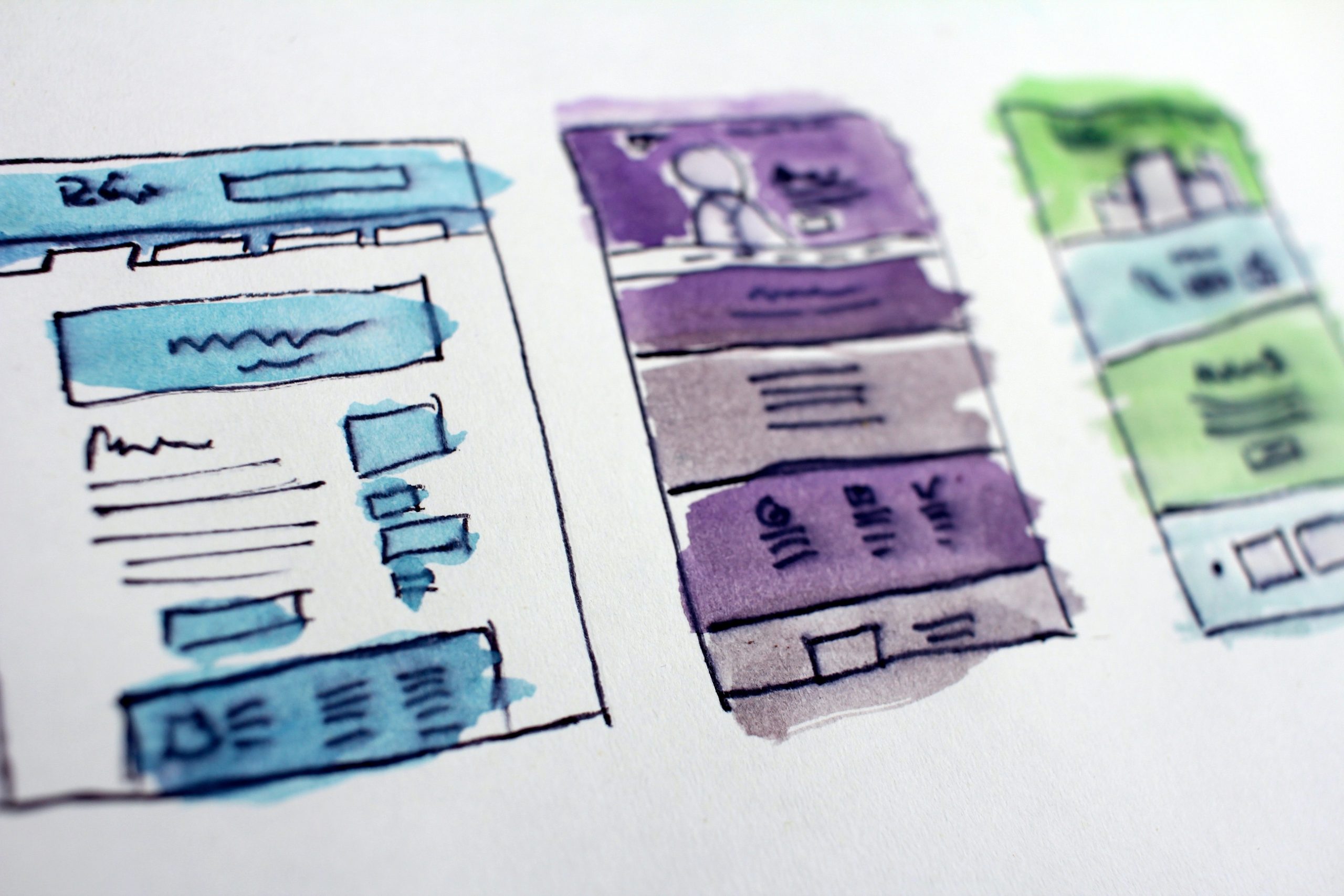Vous ne savez pas par où commencer?
Contactez-nousWhen planning your digital project, you’ll be faced with a major dilemma—opt for custom software that you’ll own or go for pre-built software and pay for a license. Your decision will have a significant impact on your organization. In this article, we’ll shine a light on custom software and give you a full review of its main advantages and disadvantages so you can make the best decision for your business.
Definition of custom software
Custom software is unique by definition: no one else has it. It’s designed according to your organization’s particular requirements and meets your technical specifications. It can take the form of a web, mobile or embedded application and is created according to specific needs, which won’t be easily met by the off-the-shelf software on the market. Custom software is designed and developed specifically for you. Imagine that you’re having a house built: you’re in complete control from start to finish.
Pros of custom software
A solution tailored to your needs and business issues
The most obvious advantage of custom software, in the eyes of many business leaders, is its unique nature. The software is thought through from A to Z according to your concerns. Co-creation is an approach where the customer designs the software with the supplier. This is an important characteristic since you’ll be asked to define your needs and priorities in order to create software that truly meets your objectives.
Competitive advantage in the market
Your solution is unlike any other on the market, giving you a head start over your competitors. The goal of custom software is to increase your productivity, including that of your employees, partners and clients. You don’t want to do what everyone else is doing and would rather tackle your issues from a different angle. And everyone knows that differentiation and innovation make all the difference.
Here’s an example: one of our clients in the food industry was so innovative with its custom platform that it managed to become number one in its market in a few years by minimizing the amount of staff it hired for its operations. Using software designed specifically for the organization, it was able to outperform the competition by providing its customers with more flexibility and speed, enabling it to benefit from higher operating margins and therefore continually invest in the digital platform and its physical infrastructure.
Better scalability
The business world is evolving at a rapid pace and it’s no longer necessary to follow the strict rules of a pre-built product. You can start small with a custom app that meets some of your urgent needs (also called an “MVP” or “Minimum Viable Product”), then improve your software according to your needs and feedback from your users. The software can grow and evolve with your company, because you can change its structure whenever you want. If your needs change along the way (and of course they will!), you can adapt your application accordingly, which is less true when you have a pre-built solution with rigid parameters.
Full control of the software
The concept of control is very important to companies—especially when it comes to technology. As the owner of the custom software, you’re the only one that has control. That is particularly important, because being at the mercy of the supplier when you need an update or an added functionality is not a great situation to be in. Imagine wanting to add functionalities but being prevented from doing so by the company that makes your software: “Sorry, we plan to add that functionality within two years.” And if you want to hire their team to develop the functionality faster, you’d better get your chequebook out! Custom software helps you to be more agile and resilient while facing the many fluctuations of a constantly changing industry. When you’re in control of your own in-house application, your organization isn’t handcuffed to a single supplier. If you’re not satisfied with your supplier, you can always switch to another one because it’s your own software after all.
Data availability and security
So we’ve talked about having control over your application, but what about having control over your data? Most of the time, the data collected by licensed software is stored on third-party servers that may even be located elsewhere in the country. That reality can become a real security issue when your application handles sensitive data, such as transactions, personal and confidential information, financial data, etc. A custom application can be hosted wherever you want and you can choose (or change) your service provider according to your specific security criteria. In addition, since you’ve retained control over your server (or cloud) hosting provider, you can negotiate a custom service level agreement (SLA). This agreement sets out the response times that your service provider commits to should there be an outage that makes your application unavailable.
On planifie un appel?
N’hésitez pas à contacter notre équipe d’experts en logiciel sur mesure afin de savoir qu’elle est la prochaine étape pour vous. Elle vous contactera dans les 48 prochaines heures ouvrables
contactez-nousContrôle total du logiciel
La notion de contrôle pour une entreprise est très importante, surtout pour ce qui touche les technologies. En tant que propriétaire du logiciel sur mesure, vous seul êtes en contrôle.
C’est d’autant plus important, car être à la merci d’un fournisseur pour les mises à jour ou l’ajout de fonctionnalités n’est pas une situation enviable.
Imaginez un peu désirer ajouter des fonctionnalités, mais être bloqué par la compagnie qui fabrique votre logiciel : « Désolé, nous avons prévu rajouter cette fonctionnalité dans un horizon de 2 ans ! ». Et si vous voulez embaucher leur équipe pour développer cette fonctionnalité plus rapidement, sortez votre chéquier!
Un logiciel sur mesure vous permet de gagner en agilité et en résilience face aux nombreuses fluctuations d’une industrie en constant mouvement.
Lorsque vous êtes en contrôle de votre propre application « maison », votre organisation n’est pas menottée par un seul fournisseur. Si vous n’êtes pas satisfait de votre prestataire de service, vous pouvez toujours changer de fournisseur, car après tout, c’est votre logiciel à vous.
Disponibilité et sécurité des données
Nous avons parlé, plus haut, du « contrôle de votre application », mais qu’en est-il du contrôle de vos données?
La plupart du temps, les données récoltées par un logiciel sous « licence » sont stockées sur des serveurs tiers, parfois même ailleurs au pays. Cette réalité peut devenir un réel enjeu de sécurité lorsque votre application traite des données sensibles : transactions, informations personnelles et confidentielles, données financières, etc.
Une application sur mesure peut, quant à elle, être hébergée là où bon vous semble, et vous pourrez choisir (ou changer) votre fournisseur selon vos critères de sécurité bien précis.
De plus, en ayant le contrôle de votre hébergeur de serveurs (ou de cloud), vous pouvez négocier une entente de disponibilité de service sur mesure (aussi appelée « SLA » pour Service Level Agreement). Cette entente définira les temps de réponse auxquels votre fournisseur s’engage à répondre en cas de panne qui rendrait votre application indisponible.
Inconvénients du logiciel sur mesure
Coût de démarrage important
Oui, un logiciel sur mesure peut sembler plus dispendieux à créer qu’une solution déjà existante. C’est une caractéristique propre au « sur mesure ».
Toutefois, au moment de calculer votre retour sur investissement, plusieurs facteurs sont à considérer. En voici quelques-uns :
- Combien coûteront les licences du produit?
- Est-ce une licence « par utilisateur »? Si tel est le cas, prévoyez les coûts selon la croissance de votre organisation
- Quel est le coût encouru par votre organisation pour « plier » ses processus en fonction du logiciel acheté?
- Est-ce que le produit convoité doit être acheté via un intermédiaire qui vous facturera configuration, intégration de vos données, formation, développement sur mesure, etc.?
- Quels sont vos besoin futurs? Est-ce que vous aurez besoin de payer des modifications au produit convoité un horizon de 2 à 6 ans?
- Sur combien de temps voulez-vous amortir votre investissement? Additionnez tous les coûts – internes et externes – reliés au logiciel que vous désirez vous procurer
Temps de déploiement plus long
Créer de toute pièce un produit, dématérialisé ou non, est un travail de longue haleine qui nécessite un temps de développement conséquent.
Avant d’assembler un casse-tête, les pièces doivent être réfléchies puis fabriquées longtemps à l’avance.
Aujourd’hui, plusieurs méthodes ont été développées afin de palier ce manque à gagner :
- Demandez à votre fournisseur de développer le logiciel sur mesure en différentes phases, en commençant par la tenue d’ateliers collaboratifs. À ce moment, les fonctionnalités phares et/ou urgentes du projet seront ciblées dans le but de livrer rapidement un produit minimum viable (MVP)
- En développant votre produit de façon itérative, votre logiciel sera encore plus pertinent pour votre organisation, car vous aurez des données sur lesquelles vous baser afin de guider les prochaines priorités. Et le travail continue avec de multiples itérations, des cycles de développement et la sortie de nouvelles versions à chaque trimestre, voire chaque année.
Plus difficile de tester avant d’investir
Comme le logiciel sur mesure n’existe pas avant de faire appel au fournisseur, obtenir un aperçu ou encore participer à un test n’est pas gagné d’avance.
Encore une fois, aujourd’hui, les méthodes de construction de logiciels sont de plus en plus sophistiquées et il existe des façons de palier à cet inconvénient :
- La première façon est de développer un « prototype » de votre application. Libéo fait appel à une combinaison d’ateliers appelée Design Sprint et après seulement quatre jours vous obtenez un prototype! Cette méthode vous permet donc d’obtenir un aperçu de la viabilité de vos idées avec du concret très rapidement
- Une firme mature en développement logiciel saura même rendre un prototype « utilisable », c’est-à-dire que votre équipe pourra l’utiliser concrètement et même le tester auprès de vrais utilisateurs. Grâce à des données authentiques si tôt dans le projet, vous aurez mis toutes les chances de votre côté afin que votre logiciel soit pertinent pour l’utilisateur, viable économiquement et faisable technologiquement
- Tel que mentionné plus haut, une autre approche qui donne de bons résultats est celle du produit minimum viable (MVP). Il s’agit d’une technique pour développer les fonctionnalités primordiales d’un logiciel en peu de temps pour justement tester si elles sont valides
Au final, pourquoi un logiciel sur mesure serait mieux adapté à votre entreprise?
Pour plusieurs raisons, le logiciel personnalisé répond mieux à vos enjeux d’affaires. Il propose un niveau de contrôle plus élevé, un réel avantage compétitif et un soutien technique approfondi.
Ce type de solution comporte quelques inconvénients, certes, mais ceux-ci peuvent être mitigés grâce, notamment, à des méthodes de prototypage modernes et sophistiquées
Est-ce que le produit sur mesure répond à tous les besoins? Bien sûr que non. Si votre besoin est plutôt simple, que vos processus sont très standards et votre budget très limité, il peut être plus avantageux de se procurer un produit préfabriqué.
Toutefois, nous croyons que de proposer un projet numérique en phase avec vos priorités – et donc qui vous ressemble – supplante bien d’autres considérations. Vous obtiendrez ainsi un meilleur retour sur investissement à long terme et vos utilisateurs n’en seront que mieux servis.
Avec toutes les options de financement qui s’offrent à vous, garder mainmise sur votre actif numérique nous semble beaucoup plus avantageux.
N’oublions pas qu’un logiciel sur mesure est bien souvent la seule option pour livrer une solution innovante à un problème pointu. La force de la cocréation et d’un accompagnement stratégique pour déterminer vos obstacles et leurs solutions représentent une véritable mine d’or pour les entreprises en quête d’un actif numérique à durée de vie remarquable.




